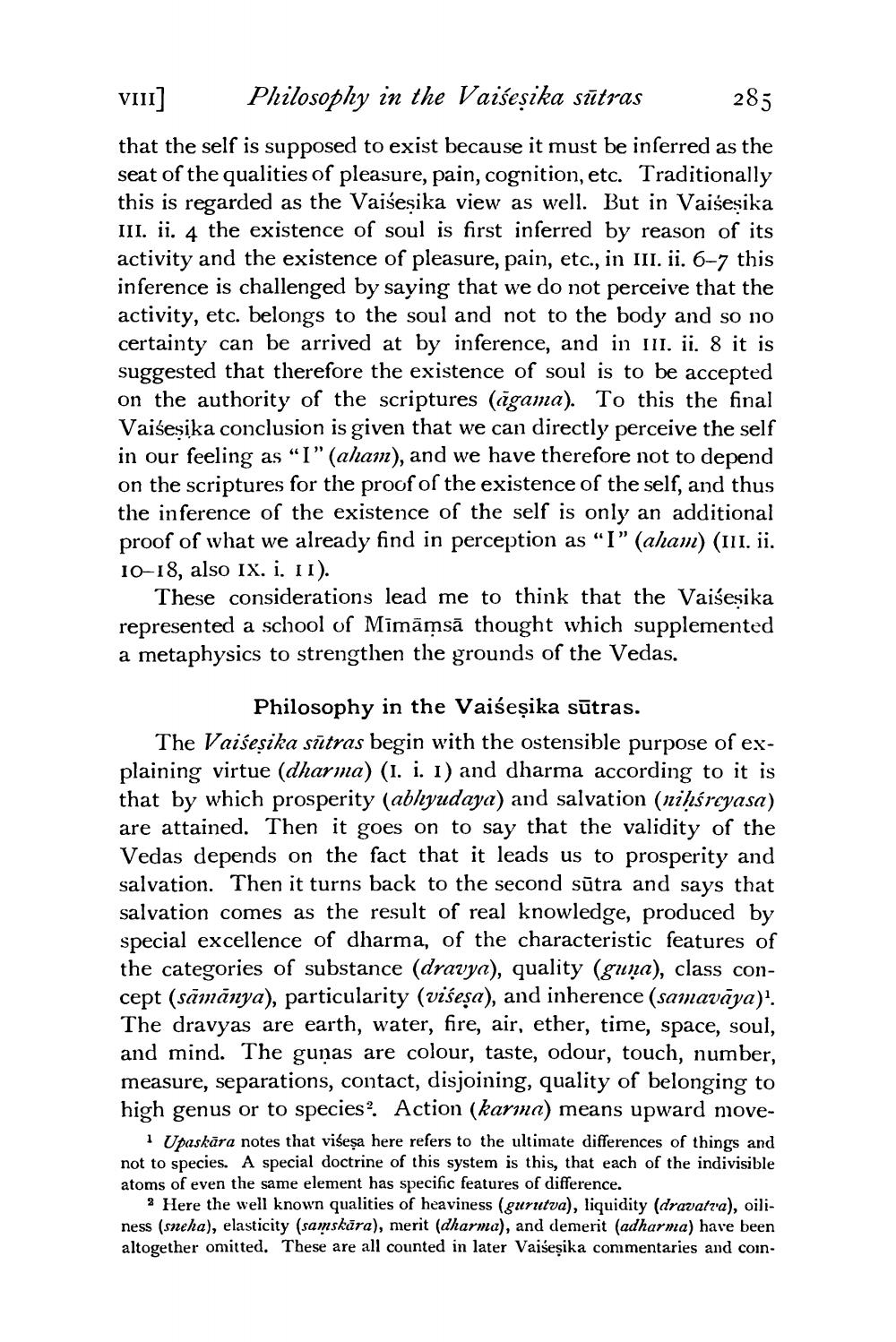________________
VIII]
Philosophy in the Vaiseṣika sutras
285
that the self is supposed to exist because it must be inferred as the seat of the qualities of pleasure, pain, cognition, etc. Traditionally this is regarded as the Vaiseṣika view as well. But in Vaiseṣika III. ii. 4 the existence of soul is first inferred by reason of its activity and the existence of pleasure, pain, etc., in III. ii. 6-7 this inference is challenged by saying that we do not perceive that the activity, etc. belongs to the soul and not to the body and so no certainty can be arrived at by inference, and in III. ii. 8 it is suggested that therefore the existence of soul is to be accepted on the authority of the scriptures (agama). To this the final Vaisesika conclusion is given that we can directly perceive the self in our feeling as "I" (aham), and we have therefore not to depend on the scriptures for the proof of the existence of the self, and thus the inference of the existence of the self is only an additional proof of what we already find in perception as “I” (aham) (III. ii. 10-18, also IX. i. II).
These considerations lead me to think that the Vaiśesika represented a school of Mīmāmsā thought which supplemented a metaphysics to strengthen the grounds of the Vedas.
Philosophy in the Vaiśeșika sūtras.
The Vaiseṣika sūtras begin with the ostensible purpose of explaining virtue (dharma) (1. i. 1) and dharma according to it is that by which prosperity (abhyudaya) and salvation (niḥśreyasa) are attained. Then it goes on to say that the validity of the Vedas depends on the fact that it leads us to prosperity and salvation. Then it turns back to the second sutra and says that salvation comes as the result of real knowledge, produced by special excellence of dharma, of the characteristic features of the categories of substance (dravya), quality (guna), class concept (sāmānya), particularity (viseṣa), and inherence (samavāya)1. The dravyas are earth, water, fire, air, ether, time, space, soul, and mind. The gunas are colour, taste, odour, touch, number, measure, separations, contact, disjoining, quality of belonging to high genus or to species. Action (karma) means upward move
1 Upaskāra notes that viseṣa here refers to the ultimate differences of things and not to species. A special doctrine of this system is this, that each of the indivisible atoms of even the same element has specific features of difference.
2 Here the well known qualities of heaviness (gurutva), liquidity (dravatva), oiliness (sneha), elasticity (samskāra), merit (dharma), and demerit (adharma) have been altogether omitted. These are all counted in later Vaiseṣika commentaries and coin




